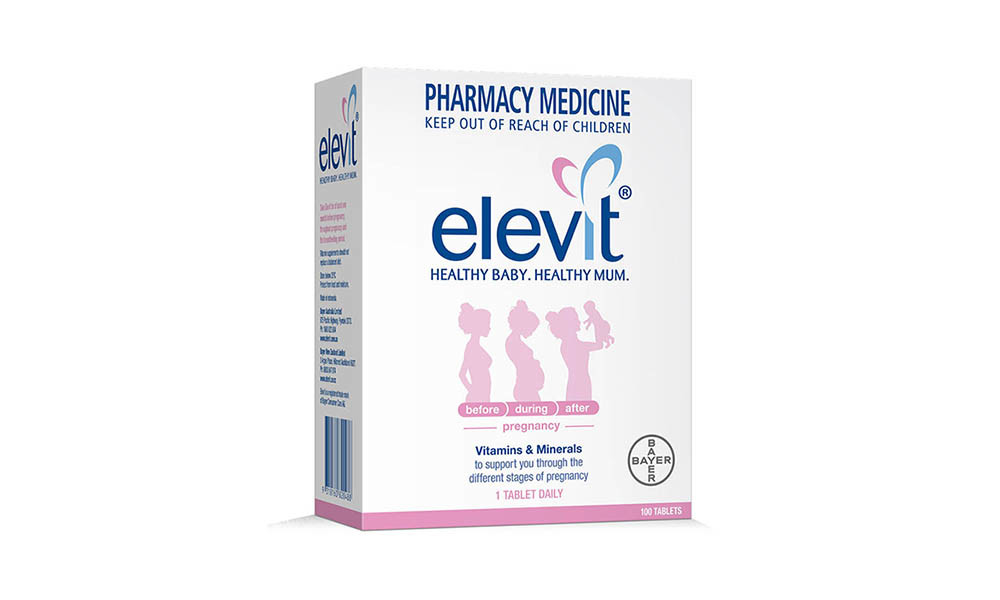This post is also available in: Español
“Should I take Elevit” is a relevant question. Many studies are showing the effectiveness of supplements on the fertility of mice. Are these supplements then tested on people for the same results before going to market? The answer is no. They are not, and legislation says they do not have to be tested on people first either.
Take the globally famous supplement Elevit and Menevit made by Bayer. Elevit is one of the foremost pregnancy multivitamins, available in more than 30 countries worldwide. Sales of Elevit grew by 17.9% last year, and Bayer makes 40 billion USD a year.

Taken from the website “Elevit is a pregnancy multivitamin and mineral supplement that has been specially formulated to help meet the increased nutritional needs of women who are trying to conceive, pregnant and breastfeeding.”
“Menevit is a male fertility supplement that is specifically formulated to help promote sperm health. Menevit is a unique combination of antioxidants specifically formulated to maintain sperm health for couples planning a pregnancy.”
Note that Elevit is advertised to “meet increased nutritional needs” and Menevit “maintains sperm health.” However, is this why people take them?
Most women take these supplements believing it will help them get pregnant and stay pregnant. Men take it thinking it will help improve poor semen qualities.
Has Elevit been tested on women to see if it helps with pre-conception and conception? One study done in 1994 tested these multivitamins for pregnancy outcomes in 5502 women over ten years. The results?
“Elevit had no significant effect on pregnancy outcomes (overall pregnancy rates).”
Elevit does contain folate and iron which are proven to reduce neural tube defect and spina bifida. This supplement can improve birth outcomes, but there is no evidence it helps in any other way. No further studies have been done.
The original study that launched Menevit split up 60 men, gave half of them the supplement and then tested IVF outcomes for their partners. They never tested the men. Why didn’t they do before and after semen analyses? In an unpublished study, they did. The results? No statistically significant improvement in sperm concentration (p=0.304), sperm motility (p=0.778) or overall sperm morphology (p=0.938). 2. Is this the reason the study is unpublished.
Is this indicative of the rest of the supplement industry?
Why do we believe they help us when the science says it doesn’t?
How did things get this way?

The vast majority of research to help improve fertility for women are first studied in mice. On the backs of these studies, procedures such as IVF and GnRH drugs were refined and developed. Where pharmaceutical companies were unable to patent discoveries from research, the supplement market was created. It takes no more than a promising finding on mice to fully launch a product, have it approved by the FDA and marketed to the general public as a supplement.
In the US, for a supplement to be approved, it doesn’t have to be tested on people before being sold. This is in stark contrast to pharmaceuticals, where once a benefit is apparent in mice it must go on to human trials before being released.
So why don’t supplements need to be tested on people?
It is a matter of legislation. Supplements must do no harm, and in the US it is the FDA that has to prove they are harmful, not the people producing them to prove they are safe. Even though supplements and medicine originate from research in the lab, their ability to be patented is where they diverge.
Some doctors rue the supplement industry.
Many people will turn to well marketed sub-clinical supplementation for treatment instead of real medicine. What the doctors may not appreciate is that it is the very same pharmaceutical industry supports them also produces these supplements and provides the evidence and marketing money to launch them.
Supplements are the unusable leftovers of pharmaceutical research, pushed through the FDA and marketed to people under the category of Food.
So what does all of this have to do with mice?
The majority of the vitamins, minerals and other ingredients in your supplements were all originally tested and found to be helpful on mice. The fertility outcomes they noticed in mice, they then project onto hopeful results for women. CoQ10, Melatonin, Vitamin D3, DHA/EPA Omega 3, Myo-Inositol and L-Arginine are all supposed to help women with poor egg quality. In every instance, they have been helpful for mice and helped mice have more babies than their untreated counterparts. In every example for women when used as supplementation the science concludes “no statistical difference in pregnancy outcomes when compared to the control group.” (please read the other articles published here for specific studies and details).
DHEA is the only tested supplement that shows increased pregnancy rates in women. Also, Advanced Fertility Solutions products too: they have proven to be effective using before and after results on women and men with fertility issues.
When trying to make a decision on what to take to help you with your fertility problem, look for research with proven results of increased pregnancy rates.

So if it works on mice, then why not women?
Researchers often turn to model organisms to understand the complex molecular mechanisms of the human body. The mouse has long been used to gain insights into gene function, disease, and drug development. But not all aspects of mouse biology reflect human biology. Understanding which aspects are similar will allow scientists to identify when mice can best serve as a useful model organism.
No scientist can tell you why when fertility products do well in mice they don’t do the same for women. Perhaps the reproductive aspects of mice are different from women, and therefore research is incompatible for real-world fertility outcomes. An average mouse can produce 3 – 14 pups in 21 days five to ten times a year. Perhaps that is why these products are effective on mice but not on women. The breeding capacity of mice vastly outstrips that of women.
The reality of fertility supplementation on mice and women is that science has managed to make a lot more mice but no more human babies.
https://www.bayer.be/nl/media/nieuws/third-quarter-of-2016.php
https://link.springer.com/article/10.1007%2FBF02390940 https://www.nih.gov/news-events/nih-research-matters/comparing-mouse-human-genomes
https://www.ncbi.nlm.nih.gov/pubmed/17550489
https://digital.library.adelaide.edu.au/dspace/bitstream/2440/66099/9/01front.pdf

